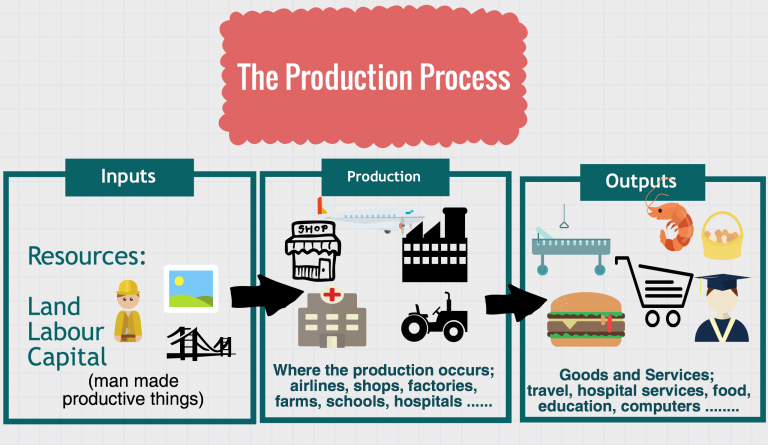What are Resources in Economics?
Resources in economics are the inputs into the production process.

Accountants analyse and report costs and benefits to the business that are measured in number form or quantified.
Economists consider quantifiable and unquantifiable costs and benefits. For example, to grow coffee, a producer needs a warm climate and a suitable geography as well as purely the financial inputs of the business.
Types of Economic Resources
The types of resources in economic language are land, labour and capital.
♦ Land are the naturally occurring resources an economy possesses (climate, water, space and so on).
♦ Labour is the collection of people, the population availability, the age, the eduction and skills.
♦ Capital is the man-made infrastructure the economy, the buildings, technology, equipment, roads and rail systems.
Land, labour and capital resources produce the goods and services for an economy.
These resources are inputs into the production process.
To learn more, Take this Introduction to Economics Course
Back to Economics Questions and Answers



